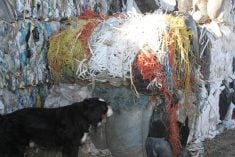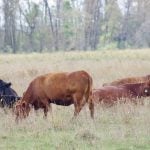SaskPower has applied for a 4.9 percent rate hike that, if approved, would add an average $10 per month to farm power bills.
President Robert Watson said July 10 the increase, set to take effect Jan. 1, is necessary to pay for improvements required to the province’s electrical system.
The last rate hike was 4.5 percent in August 2010.
The crown corporation plans to invest $10 billion over 10 years on capital projects.
The corporation expects electricity demand to grow by 2.9 percent each year over the next 10 years. In comparison, demand grew 1.4 percent per year between 2000 and 2010.
Read Also

Canadian farmers need level playing field for regulations – says Minister MacDonald
Federal agriculture minister Heath MacDonald is urging the Canadian Food Inspection Agency and the Pest Management Regulatory Agency to speed up their decision making.
Watson said much of the electrical system was built 30 to 50 years ago and needs to be refurbished.
On the power production side, two major projects will account for most of the capital expense in 2013.
The carbon capture and storage project at Boundary Dam, the first project of this type in the world, would reduce carbon emissions from the dam by 90 percent, or one million tonnes per year.
The total cost of the project is $1.24 billion, and $365 million is allocated for next year’s work.
The second project is the expansion of the Queen Elizabeth Power Station to add 200 megawatts by 2015. This project will cost $555 million.
There are 20 new transmission projects planned, along with programs such as the maintenance program for 1.25 million wood power poles.
Watson said the rate increase would provide an additional $90 million to the corporation.
The increase will also keep Saskatchewan competitive with other provinces that use thermal power generation such as coal or natural gas.
Residential rates will still be eight percent lower than the Canadian average and 22 percent lower than the rates charged in Ontario, Alberta and the Atlantic provinces, Watson said.















